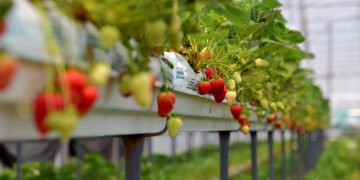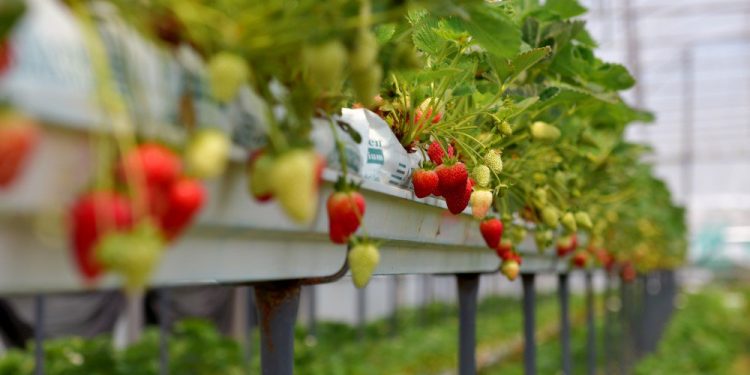This season in Russia is expected quite a decent harvest of berries. However, next year, the ban on the import of planting material for garden and ornamental plants, which, under the fourth package of European sanctions, will come into force on July 10, 2022, may affect. Until now, almost 100% of planting material for growing, for example, garden strawberries, was imported from European countries.
According to the Ministry of Agriculture, Russian farmers have already harvested 8.8 thousand tons of fruits and berries this season. This is 1.4 times more than last year. Of these, 4.2 thousand tons of berries (mainly strawberries) were grown, stone fruits (primarily cherries and apricots) – 4.6 thousand tons. Such results have become possible, among other things, thanks to state support, they say in the department. Gardeners are reimbursed for part of the costs of laying and caring for perennial fruit and berry plantations, compensate for the costs of creating and modernizing agricultural facilities, preferential investment and “short” loans are available for businesses, and grants for farmers.
Now it is still difficult to predict the overall harvest of berries, says Irina Koziy, general director of the Berry Union. It was a cold and rainy spring in the south, so fewer berries were harvested, and besides, the berry turned out to be not too sweet due to the lack of sun. Harvesting has now begun in the center of the country. The harvest of greenhouse berries turned out to be decent, and in some places it turned out to be infected with mold due to dampness in open ground.
According to Koziy, this season the problem of personnel shortages associated with the pandemic has been resolved: foreign seasonal workers have returned to Russia, and local residents are also pulling themselves up to work. Last year, largely due to a shortage of personnel, many large agricultural producers were forced to reduce the area under berries. A small increase in production based on the results of the year (according to Rosstat, this is 600 tons) occurred due to small farms.
However, gardeners have already faced the consequences of sanctions against Russia this year, says Koziy. In the spring, seedlings were brought at exorbitant prices due to difficulties in logistics. And from July 10, the import of planting material will be completely impossible, which will affect the next season, because the same strawberries are transplanted every two or three years. According to the Berry Union, Russia has its own seedling production, but it is small and it is mostly handicraft – such planting material has a much lower yield. Professionally, only one enterprise in Adygea is engaged in this. And it will be difficult to import it through third countries, since the West “takes very tough measures against those who cooperate with Russia,” the expert notes.
The situation with the supply of agrochemicals, equipment and spare parts, substrates and structures for greenhouses is no less difficult.
“The rubber band in the pump broke – the entire irrigation system immediately rises. And that means the whole plantation dies. And in China they don’t make suitable spare parts,” says Koziy.
Similar problems – with all berries. Raspberry picking has now begun in the south. For the first time, raspberries grown in greenhouses appeared on the market – from the Moscow region, Voronezh, Kaliningrad regions. But how the greenhouse direction will develop further is still unclear. In this sense, gardeners were in a more advantageous position. There is more experience in growing apple seedlings in Russia. Yes, and the planting cycle is different there: if you need to replant strawberries every 2-3 years, then an apple orchard lives on average 13-15, or even more than 20 years, notes Irina Koziy.































